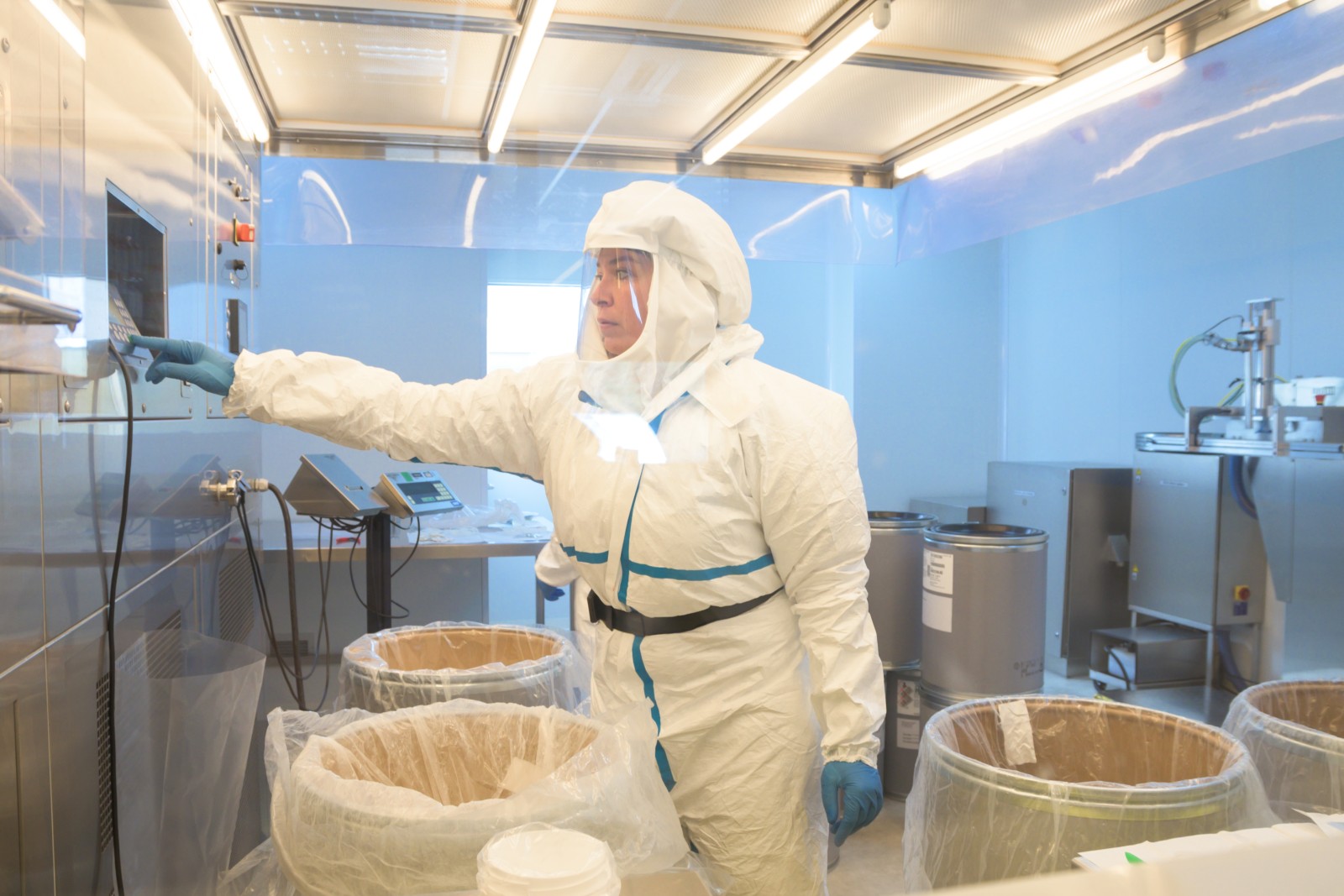Tech transfers and support for local manufacturing hubs to increase local availability of medicines and vaccines
Date
18 November 2021

Aurobindo, GSK, Novartis, Otsuka, Pfizer, Sanofi, Viatris
The creation of local hubs to manufacture antibiotics
Seven companies are involved in technology transfers and other initiatives to enable antibacterial and antifungals medicines and vaccines to be produced locally
8 countries (Brazil, China, India, Nigeria, Pakistan, South Africa, Vietnam, Zambia)
When supply chains are fragile or demand increases unexpectedly, this can lead to shortages in medicines and vaccines. Since these products can be produced through sensitive, multi-stage and highly technical processes, multiple manufacturers need to master these processes to ensure that supply can meet demand, and to minimise the impacts of shutdowns. Shorter supply chains can reduce the risk of fragmentation and stockouts and enable people to access a wider range of products.
Antibiotic production can be hampered by low profitability and low sales volumes. Companies that make these medicines should also aim to supply them continuously in low-and-middle income countries, where people lack access to affordable, quality-assured products. This involves creating transparency around supply chains for antibacterial and antifungal medicines and vaccines and working toward improving local manufacturing capabilities and working with multiple API suppliers.
What does best practice look like?
To support the development of local manufacturing in low and middle-income countries, companies are investing in building capacity and sharing skills, knowledge, technologies, and manufacturing methods with local manufacturing partners. Initiatives need to be sustainable, enabling more countries and regions to produce their own medicines and vaccines locally over the long term. Ten companies report that they are supporting local manufacturing (such as by carrying out technology transfers) in at least one of the 102 low- and middle-income countries in scope.
Africa accounts for nearly 17% of the world’s population, but produces only 3% of the medicines and 1% of the vaccines it consumes. Seven companies report technology transfers to African countries to produce antibiotics or antifungals medicines or vaccines locally.
Pfizer is working with the South African government and Biovac Consortium Cape Town to produce its pneumococcal vaccine (Prevnar13) locally, taking raw materials through to the release of fully packaged products. It has developed automative processes to standardise the complex formulation of its vaccine, facilitate transfer of technology and reduce manufacturing risks.
Otsuka is working with Viatris (previously Mylan) to transfer technology to produce and distribute delamanid (Deltyba). The first phase included initial manufacture, package and distribution of delamanid in access countries. From 2021, full API manufacturing will enable the generic version of delamanid to be made available in access countries including South Africa and India and to be procured through the Global Drug Facility following WHO-prequalification.
In Nigeria, Sanofi has worked since 2008 to produce medicines locally, including the antibiotic metronidazole (Flagyl). It helps local plants meet quality standards and upgrade capabilities.
In Brazil, GSK partners with three state-owned vaccine manufacturers to produce priority vaccines, including antibacterial vaccines. It is transferring manufacturing practices such as formulation and packaging, technical know-how, and analytical testing methods. GSK aims to upgrade infrastructure, develop local capabilities, and train employees in good manufacturing practices. Through this, Brazil will be enabled to produce at least 60 million vaccine doses annually for its population.
Novartis partners with third parties in Pakistan to transfer manufacturing knowledge and produce products locally, including its Sandoz penicillin portfolio. As the development of effective new antibacterial medicines is failing to keep pace with resistance, older medicines such as penicillin have a role to play.
Aurobindo’s manufacturing facilities are located in India. It supplies APIs to low- and middle-income countries and aims to improve their capacity to produce finished medicines.
Next Steps
Companies need to develop local manufacturing sites and share knowledge, especially in resource-poor regions with high demand such as sub-Saharan Africa. The Benchmark looks for companies to build capacity and/or transfer technologies to cover more products and enable countries to become more self-sufficient and distribute their own medicines. Companies are expected to make commitments for future action and to include transfers of technology in their strategy and reporting.
Lack of capability and training are significant challenges. Companies that demonstrate best practice often partner with others and/or open offices locally. They also work with other stakeholders (such as governments and NGOs) to plan transfers of technology to enable products to be made sustainably.